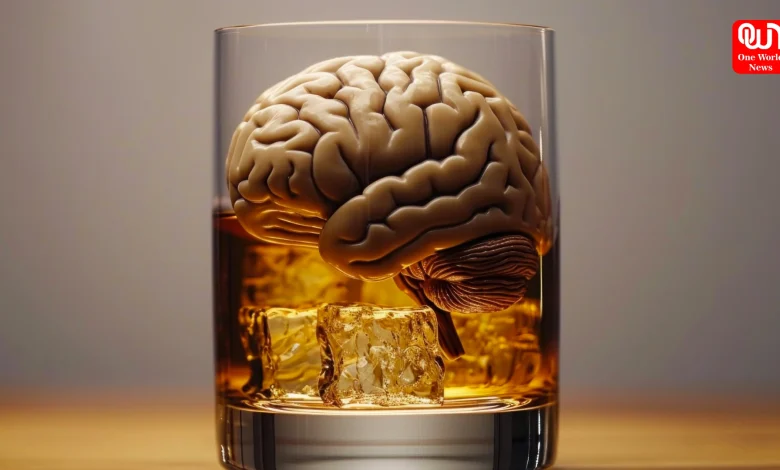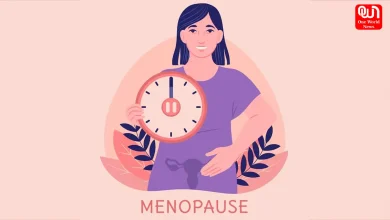Alcohol Damages the Brain it May be a Contributing Factor to Dementia
Alcohol’s Hidden Toll: How Excessive Consumption May Damage Brain Health Over Time

Heavy Drinking Linked to Brain Shrinkage and Dementia Risks, Study Finds
Excessive alcohol consumption raises the risk of high blood pressure heart disease and stroke and it can also raise the risk of cancer.
Research on the effects of alcohol on the brain is still ongoing. A recent study looked at how drinking alcohol affected different parts of the brain particularly neuropathologies linked to dementia.
In comparison to never drinking, heavy drinking in the past was also associated with a lower brain mass ratio and worse cognitive abilities. The findings suggest that alcohol may have a negative impact on the brain but more research is required.
Effects of Alcohol on the Brain
This study was a population-based cross-sectional autopsy carried out in Brazil. Researchers were able to look at 1781 participants’ brains.
The Biobank for Aging Studies eventually acquired these brains from the Sao Paulo Autopsy Service. In particular it does not include brain samples from trauma deaths.
Participants were approximately 75 years old on average and the sample was ethnically diverse. Participants were at least fifty years old and during the six months prior to their passing their next of kin had been in touch with them at least once a week.
Some possible participants were disqualified by the researchers such as those who had significant acute brain lesions or no records of their alcohol intake.
Next of kin were able to provide information to researchers about things like the participants’ medical histories, alcohol use and dementia status.
They separated the participants into groups according to the amount of alcohol they had consumed. There were heavy drinkers, heavy drinkers in the past, moderate drinkers and never drinkers.
One dose of alcohol for this study weighed 14 grams. Heavy drinkers consumed eight or more doses of alcohol in a week whereas moderate drinkers consumed up to seven doses.
Those who were once heavy drinkers stopped drinking up to three months prior to their deaths. 965 out of all participants never drank alcohol.
The next step for the researchers was to look for alterations in the brains such as those that might point to Alzheimer’s disease. Additionally they could calculate brain weight.
Read More : 6 Indicators that you Need to See a Doctor About Eyeglasses
Drinking Excessively Increases the Risk of Brain Damage by 133%
The results indicated that drinking alcohol had worse effects. When controlling for clinical factors and sociodemographic information researchers discovered that moderate heavy and ex-heavy drinkers had a higher risk of developing hyaline arteriolosclerosis than those who had never consumed alcohol.
Those who used to drink heavily also had smaller brain weights. Their average clinical dementia rating scores were marginally higher than those of never drinking. Higher scores in this instance signify poorer cognitive function. Heavy and moderate drinking did not correlate with cognitive function.
Additionally the results showed that alcohol consumption had no direct or overall impact on people’s cognitive abilities. Rather the association between alcohol consumption and cognitive abilities was found to be mediated by hyaline arteriolosclerosis.
This might suggest that hyaline arteriolosclerosis which in turn may impact certain facets of brain function is impacted by alcohol.
Read More : World Immunization Week: Protecting Generations, One Vaccine at a Time
Striking Results in spite of Limitations
There are certain restrictions on the research. To begin with, researchers had to depend on family members to provide clinical data and information about participants’ alcohol consumption.
These next of kin reports might have been out of the facts. Additionally longitudinal follow-up data prior to participant deaths such as the duration of alcohol consumption was overlooked.
Additionally, since this study only looked at individuals in one nation, information from other nations might also be helpful in reaching more robust conclusions.
According to the study’s univariate analysis heavy drinkers had a lower incidence of stroke neuropathologic lesions and high blood pressure but a higher risk of dying young. The authors speculate that this might be due to survival bias which is associated with a lower life expectancy in this group.
Because the study was cross-sectional, researchers also point out that it does not demonstrate causation. They were also unable to examine the long-term impacts of factors like excessive drinking because of the cross-sectional design of the study.
Furthermore some results like the cognitive issues they noticed in former heavy drinkers might be explained in part by reverse causality.
Lastly vitamin deficiencies in participants may have contributed to the observed cognitive decline but this was not examined by the researchers. Future research ought to consider vitamin status.
We’re now on WhatsApp. Click to join.
Like this post?
Register at One World News to never miss out on videos, celeb interviews, and best reads.







